
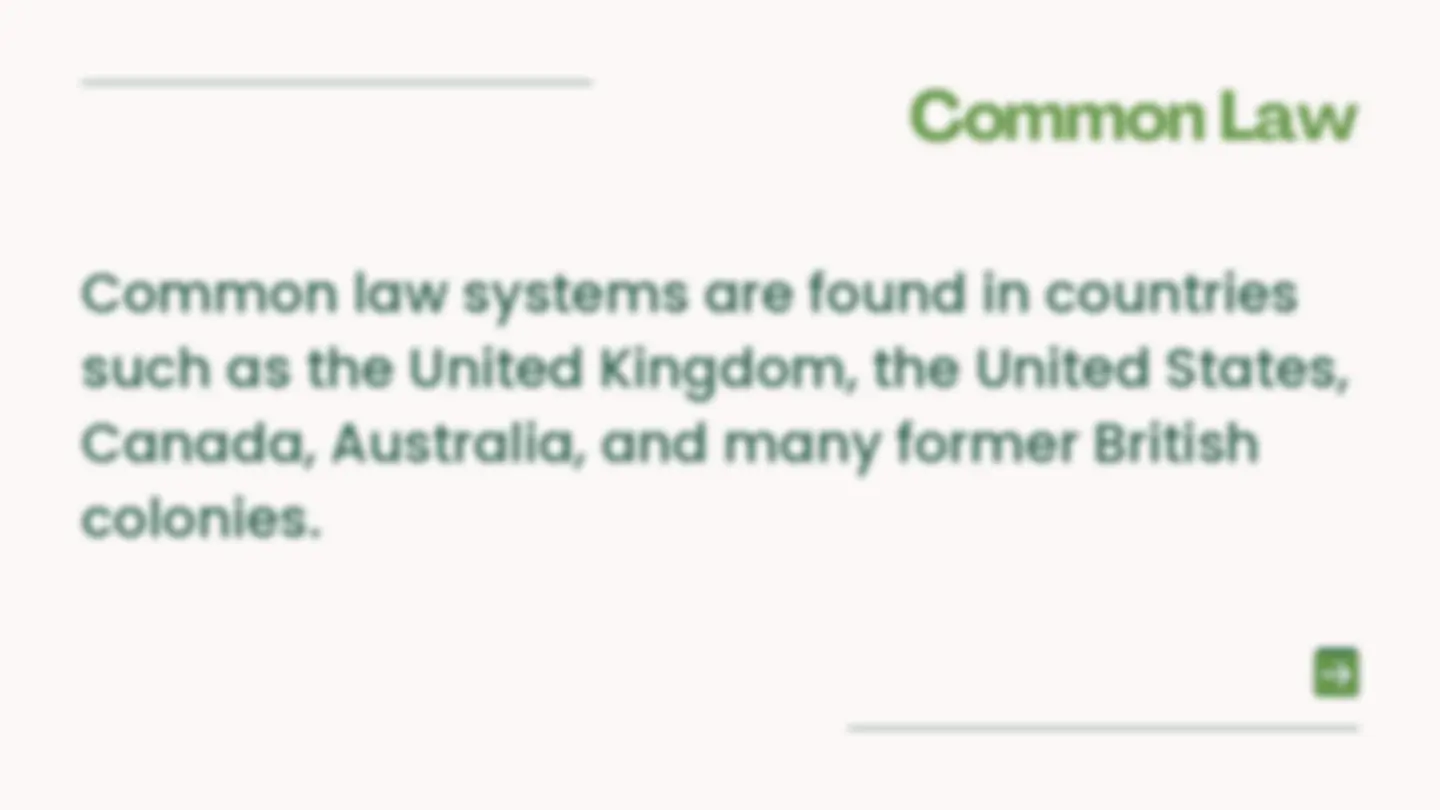
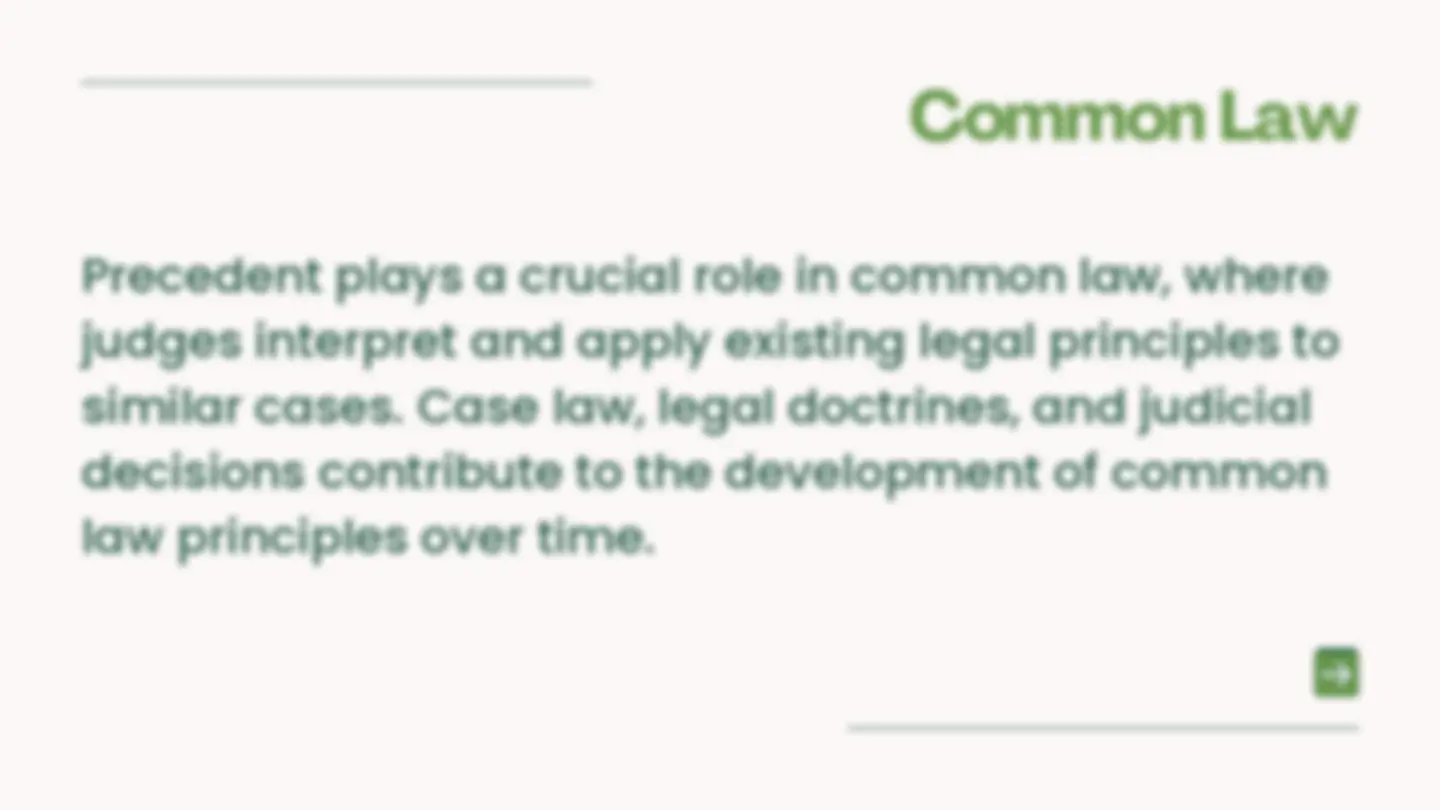
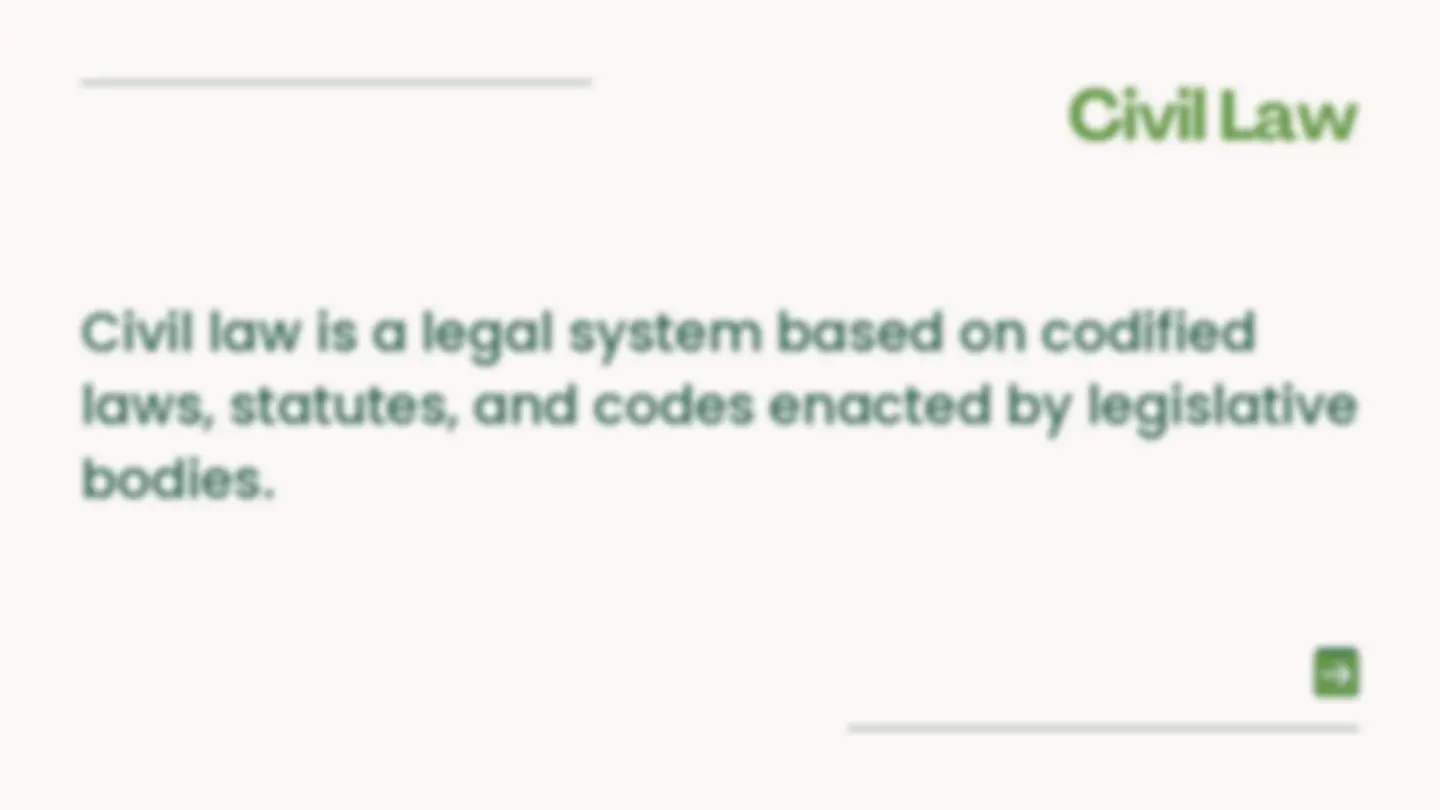



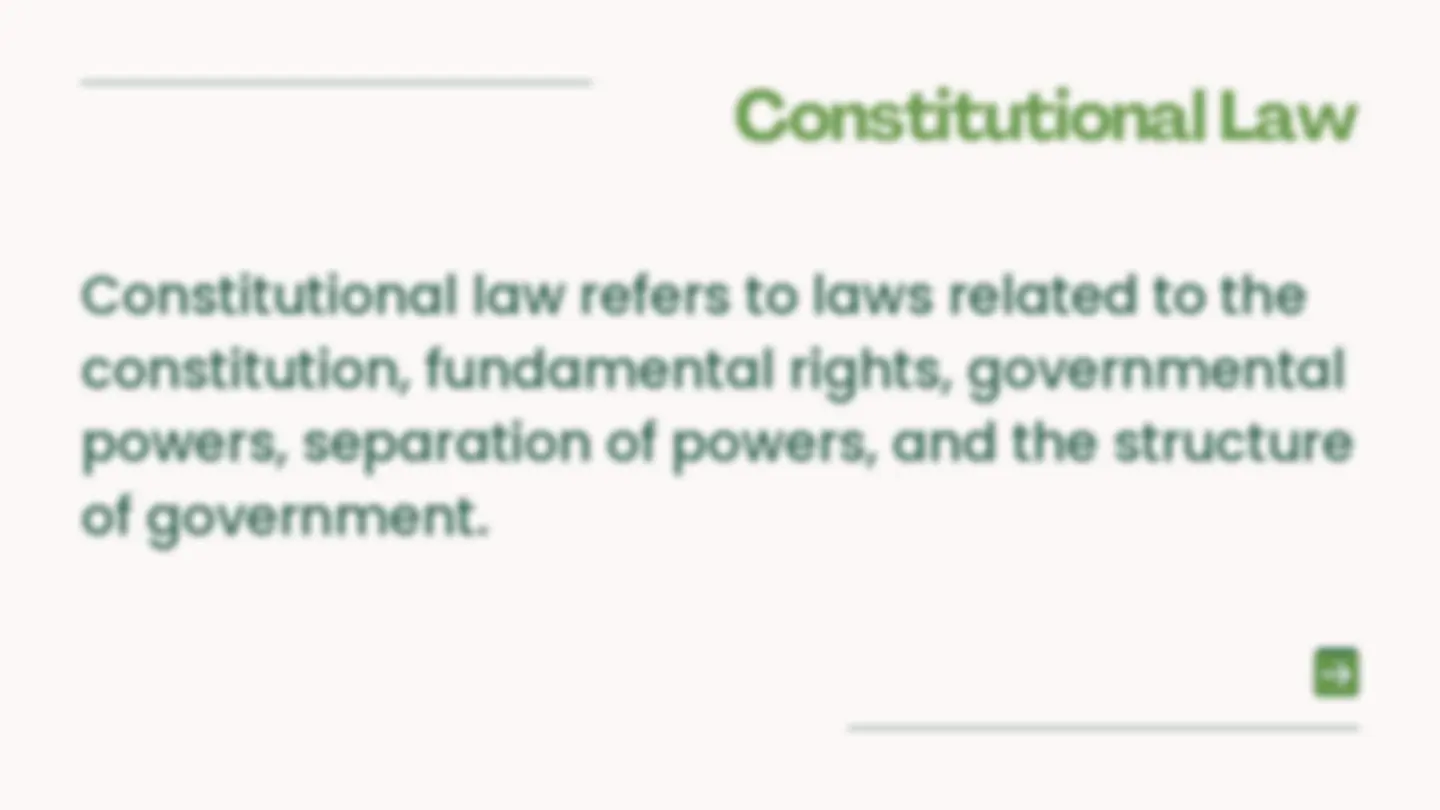
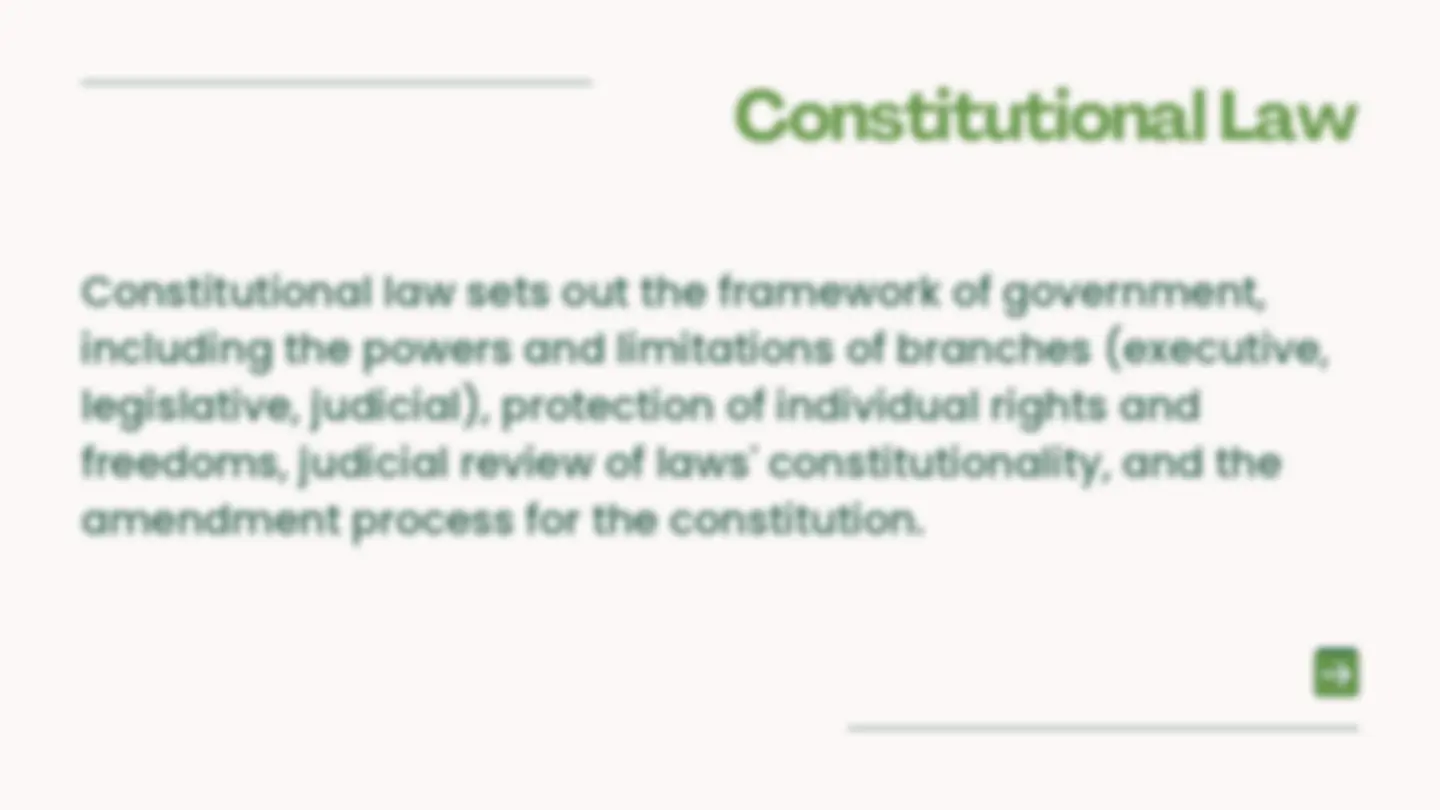



Study with the several resources on Docsity

Earn points by helping other students or get them with a premium plan


Prepare for your exams
Study with the several resources on Docsity

Earn points to download
Earn points by helping other students or get them with a premium plan
Community
Ask the community for help and clear up your study doubts
Discover the best universities in your country according to Docsity users
Free resources
Download our free guides on studying techniques, anxiety management strategies, and thesis advice from Docsity tutors
An overview of the two main branches of law: common law and civil law. Common law is a legal system where laws are developed through judicial decisions and precedent, while civil law is based on codified laws, statutes, and codes enacted by legislative bodies. The differences between these two systems, their origins, and their applications in various countries. It also discusses other branches of law such as criminal law, administrative law, and constitutional law, and their roles in legal frameworks and practice.
Typology: Slides
1 / 16

This page cannot be seen from the preview
Don't miss anything!










Presented by: Abigail Atiwag
Common Law Common law is a legal system where laws are developed through judicial decisions and precedent, rather than solely relying on legislative statutes or codes.
Common Law Precedent plays a crucial role in common law, where judges interpret and apply existing legal principles to similar cases. Case law, legal doctrines, and judicial decisions contribute to the development of common law principles over time.
Civil Law Civil law is a legal system based on codified laws, statutes, and codes enacted by legislative bodies.
Civil Law Civil law relies on comprehensive legal codes that outline rights, obligations, procedures, and legal remedies for various civil matters. Judges interpret and apply the law but do not create legal precedent in the same way as in common law systems.
Civil Law Civil law governs relationships between individuals, businesses, and organizations. It includes areas like contract law, property law, family law (e.g., marriage, divorce, custody), inheritance, and personal injury law.
Criminal Law Criminal law addresses crimes such as murder, theft, assault, fraud, drug offenses, and other illegal activities. It involves investigations, legal proceedings, trials, sentencing, and rehabilitation or punishment of offenders.
Administrative Law Administrative law deals with laws related to government agencies, regulations, administrative procedures, and decision-making by administrative bodies.
Constitutional Law Constitutional law refers to laws related to the constitution, fundamental rights, governmental powers, separation of powers, and the structure of government.
Constitutional Law Constitutional law sets out the framework of government, including the powers and limitations of branches (executive, legislative, judicial), protection of individual rights and freedoms, judicial review of laws' constitutionality, and the amendment process for the constitution.